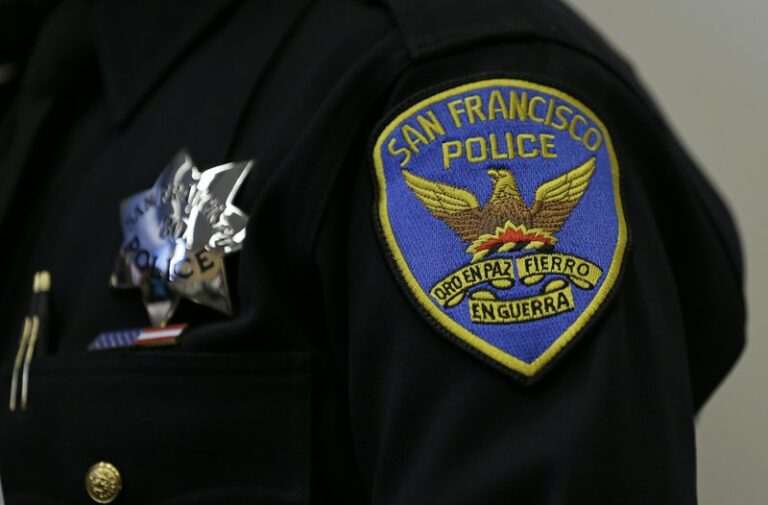San Francisco police will stop releasing the mug shots of people who have been arrested unless they pose a threat to the public, as part of an effort to stop perpetuating racial stereotypes, the city’s police chief announced Wednesday.
San Francisco Police Chief Bill Scott said the policy, which goes into effect immediately, means the department will no longer release booking photos of suspects to the media or allow officers to post them online.
Booking photos are taken when someone is arrested. They are often made public whether or not the person is prosecuted for the alleged crime, which undermines the presumption of innocence and helps perpetuate stereotypes.
Jack Glaser, a public policy professor at the University of California Berkeley who researches racial stereotyping and whose work Scott consulted, said data shows Black people who are arrested are more likely to have their cases dismissed by prosecutors.
“That may be just part and parcel of the same issue that police will stop and search Blacks at a lower threshold of suspicion in the first place and so, their arrests are more likely to be unsubstantiated,” Glaser said.
But the mug shots live on.
Numerous websites post photos of mug shots online, regardless of whether anyone was convicted of a crime, and then charge a fee to those who want their photo taken down. The phenomenon prompted California’s attorney general to charge one of the biggest operators with extortion, money laundering, and identity theft.
That contributes to Americans making an unfair association between people of color and crime, Scott said.
“This is just one small step but we hope this will be something that others might consider doing as well,” he said.
Large cities like Los Angeles and New York already have policies against releasing booking photos but make exceptions. For example, the New York Police Department, the nation’s largest, releases information on arrests but doesn’t put out mug shots unless investigators believe that will prompt more witnesses to come forward or aid in finding a suspect. Georgia and New York stopped releasing booking photos in an effort to curtail websites that charge people to remove their picture and booking information.
But San Francisco will be the first to adopt the policy as part of an effort to stop spreading negative stereotypes of minorities, something Scott, who is Black, said he has experienced when not in uniform.
“You walk into a department store and you get followed around and the security is looking at you suspiciously, I’ve experienced that,” Scott said.
He said limiting the release of mug shots of people who have not been proven guilty of a crime will remove a key contributor to the perception the public has about race and crime that is often bolstered when the booking photos are published in the news media.
In San Francisco, the only exceptions will be if a crime suspect poses a threat or if officers need help locating a suspect or an at-risk person, Scott said. Under the policy, the release of photos or information on a person who is arrested will also require approval from the police department’s public relations team.
(AP)











4 Responses
THIS IS NOTHING TO DO WITH RACE. IT JUST HAPPENS THAT MOST VIOLENT CRIMINALS ARE BLACK – LIVE WITH IT.
Its actually a good law, it stops the media from putting out pictures of people who have not been convicted, something that the media loves to do to drum up interest. Although the motivation behind why they are doing it may be debated, does anyone disagree that people who were not found guilty should have their identities exposed in a bad light?
That contributes to Americans making an unfair association between people of color and crime, Scott said.
The association is not at all unfair, and mug shots don’t contribute anything to it. It’s not based on mug shots, it’s based on the reality that young black men are about 30 times more likely than anyone else to commit crimes.
The higher rate at which cases against black suspects are dismissed is probably due to certain prosecutors (particularly San Francisco’s new terrorist-spawn DA) deliberately refusing to prosecute black people for anything unless they have no other choice.
Also, black is not a proper noun, so it should not be capitalized, just as white is never capitalized (unless it’s at the beginning of a sentence, or it’s someone’s name).